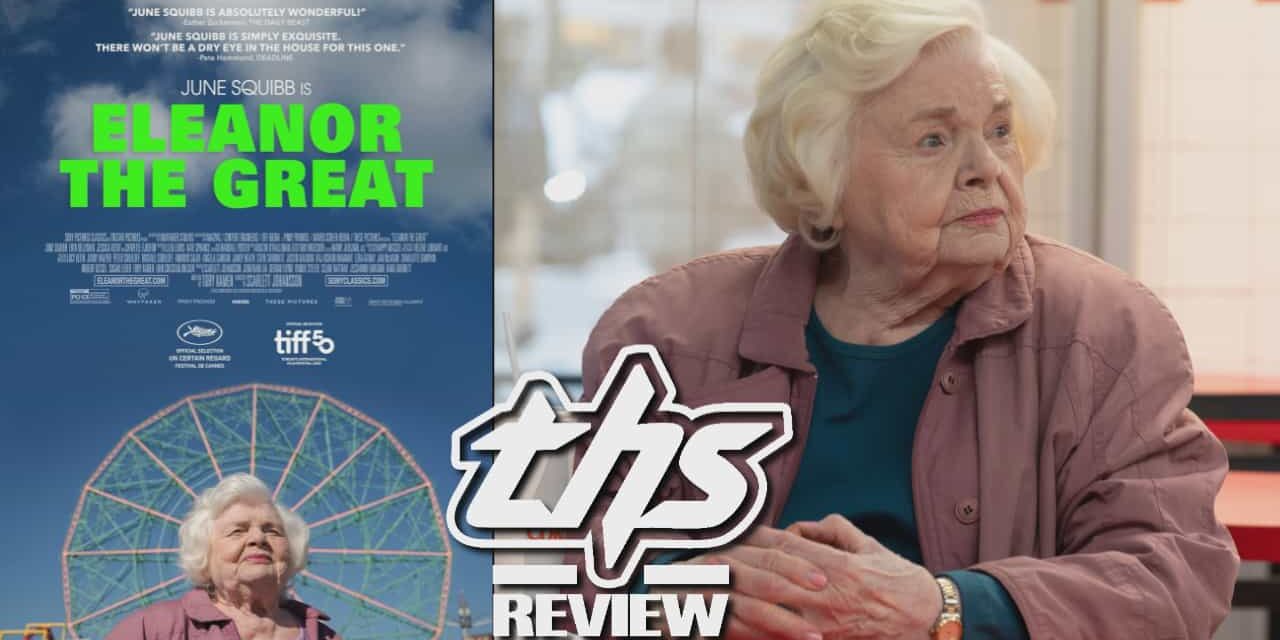Eleanor the Great, Scarlett Johansson’s directorial debut, is a film that defies easy categorization. It’s a tender, messy, funny, and controversial drama that sticks with you long after the credits roll. Johansson takes a gamble by delving into moral complexity rather than offering a safe, straightforward narrative about aging or family, and it’s precisely this risk that gives the film its unique spark.
June Squibb stars as Eleonor Morgenstein, a 94-year-old Florida widow, in Eleanor the Great. The film begins with Eleonor’s world unraveling after the death of her best friend and longtime roommate. Her family, with good intentions, decides she is too old to live independently. While this might initially suggest a gentle story of family reconciliation, Eleanor the Great delves into significantly weightier themes.

In her search for connection, Eleanor is guided into what she assumes is a typical support group. Only after it begins does she realize it’s actually a meeting for Holocaust survivors. Rather than admit her error, especially after the group insists she stay, Eleanor starts sharing her deceased friend Bessie’s survival story as if it were her own.
Squibb’s portrayal of Eleanor is a nuanced and powerful one. While her choice is shocking, Squibb imbues it with depth, making it feel layered rather than sensationalized. Her performance as Eleanor is equally sympathetic and exasperating: a woman who is achingly lonely, quietly ignored by her family, but constantly lashes out when given the chance. She is desperate for someone to see her as her friend did. Through this lie, she’s not just deceiving others; she’s keeping her friend’s memory alive in a way that feels painfully human. And yet, it’s also deeply infuriating. But this makes the audience go along for the ride with her, waiting for the other shoe to drop.
That push-and-pull is the film’s greatest strength. Johansson directs those moments with restraint, letting Squibb’s expressive performance carry the emotional weight. The result is a film that doesn’t hand you easy answers but instead leaves you wrestling with the contradictions of grief, identity, and moral compromise.





